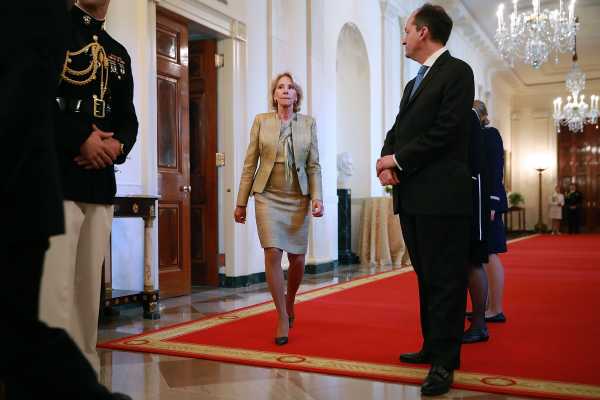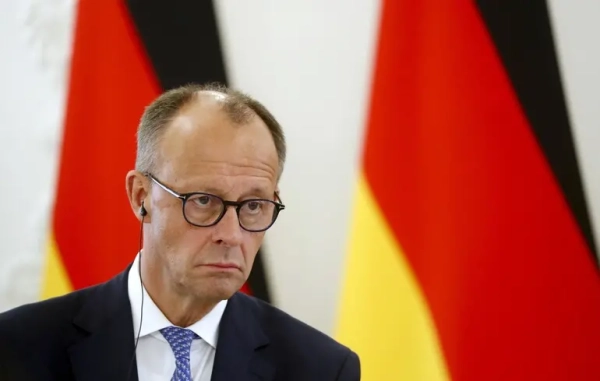
Secretary of Education Betsy DeVos might have assigned the foxes to guard the henhouse when she hired multiple former employees of for-profit colleges to the Department of Education. During her time in office, probes into for-profit colleges have been derailed and marginalized, according to a report from the New York Times.
The Times reported over the weekend that members of an Education Department team that had been investigating abuses by for-profit colleges have been sidelined, reassigned, or told to look into other matters. There are now only three members of the team that used to have about a dozen, and they’ve been instructed to focus on processing student loan forgiveness applications and small compliance cases.
Investigations into the for-profit college operators DeVry, Bridgepoint Education, and Career Education Corporation have essentially gone dark.
Elizabeth Hill, a spokesperson for the department, told the Times the team’s reduced size was the result of attrition and added that “conducting investigations is but one way the investigations team contributes to the department’s broad effort to provide oversight.” In other words, the investigation team’s mission isn’t necessarily investigations.
The Times implies another potential explanation is the number of for-profit college employees in the Education Department now under DeVos.
In August, the secretary named Julian Schmoke Jr., a former dean at DeVry, as the department’s new chief enforcement officer, making him head of the team charged with policing fraud in higher education.
She also brought in Robert Eitel, who previously provided legal services to Bridgepoint and Career Education, as her senior counselor, and Diane Auer Jones, former senior vice president at Career Education, as a senior adviser on postsecondary education. In April, Congress confirmed the appointment of Carlos Muñiz, a former consultant to Career Education, as the Education Department’s general counsel.
Not all of the former for-profit executives have recused themselves
DeVry, Career Education Corp., and Bridgepoint have a history of run-ins with federal regulators, including the Education Department. The department settled with DeVry in 2016 over unsubstantiated job placement rates, and in 2016, DeVry paid $100 million as part of a settlement with the Federal Trade Commission for misleading ads about employment success rates and income levels.
Bridgepoint was investigated by the Justice Department in 2016 over its handling of private student loans. The same year, the Consumer Financial Protection Bureau forced the company to forgive some students’ debt. In 2017, Career Education Corp. settled a false claims lawsuit that included paying the Education Department $10 million.
According to the Times, the Education Department’s team, which started after the collapse of Corinthian Colleges in 2015, continued to look into DeVry’s job placement claims and recruiting practices after the 2016 settlement. The department spokesperson said the probe was suspended before Trump took office, but former and current employees said it was an issue of contention during the transition, and there have been employee pushes to pick it up again since.
Some of the former for-profit people at the department have recused themselves from matters related to their previous jobs, such as Eitel, who has recused himself from matters related to Bridgepoint and Career Education, and Schmoke, who has recused himself from matters involving DeVry. Jones, who worked as assistant secretary for postsecondary education under President George W. Bush, hasn’t recused herself, and it’s not clear if Muñiz has.
Mercedes Schlapp, now White House director of strategic communications, is also a former consultant for Bridgepoint at Cove Strategies, a lobbying and consulting firm she runs with her husband, Matt Schlapp. Bridgepoint remains a Cove client, and the White House would not disclose if Schlapp has recused herself from matters related to the company.
Betsy DeVos is releasing for-profit colleges from Obama-era restraints
The Obama administration took an aggressive approach to for-profit colleges. Secretary DeVos has changed course, putting in place industry insiders and freezing or slow-rolling several Obama-era regulations that would have increased protections for prospective and current students.
DeVos has moved to gut Obama-era regulations that would have judged programs at for-profit colleges and vocational programs at all colleges on whether students earned enough money to repay their debts. Programs that failed to meet the standard would lose access to federal student loans — a serious financial blow in an industry that depends largely on students using federal loans to pay tuition and fees.
DeVos also delayed a requirement that institutions disclose their graduates’ debt and earnings and began efforts to roll back loan forgiveness policies. She’s also changed guidelines around erasing loans for students defrauded by for-profit institutions, making loan forgiveness harder to get.
But even with a boost from DeVos, the industry continues to struggle. The Associated Press reported in April that the for-profit college sector is still declining. As the economy gets better, adults are more inclined to go to work than they are to return to school, and for-profit institutions are competing with nonprofit schools that offer online degrees.
Sourse: vox.com






